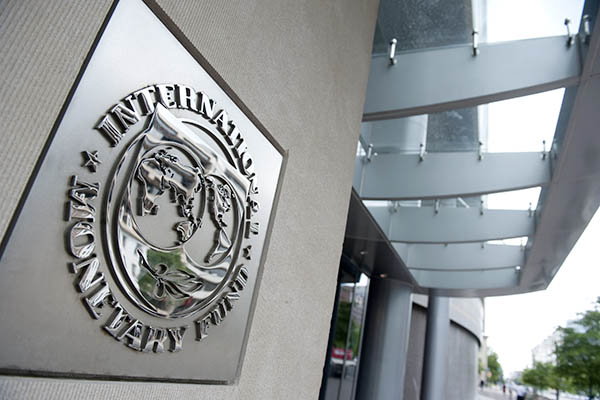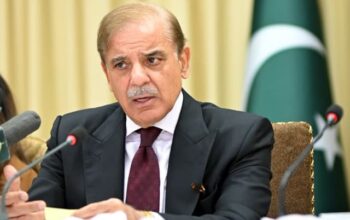By Staff Reporter
KARACHI: The International Monetary Fund’s Executive Board on Wednesday approved a $7 billion loan package for Pakistan, providing a vital lifeline to the nation’s struggling economy.
The 37-month Extended Fund Facility (EFF), agreed upon in July, will see an initial $1.1 billion disbursement by Sept. 30, with a second tranche expected this fiscal year.
Pakistan secured the IMF’s backing after fulfilling the lender’s conditions and confirming $12 billion in bilateral loans from Saudi Arabia, China, and the UAE, plus $2 billion in external financing. The funding will help Pakistan address fiscal and external imbalances, while implementing structural reforms to boost growth.
Pakistan’s last $3 billion IMF program helped avert a sovereign default in 2023 amid a sharp decline in foreign exchange reserves, currency depreciation and record inflation.
Prime Minister Shehbaz Sharif met with IMF Chief Kristalina Georgieva in New York shortly after the loan package announcement, expressing gratitude for the approval.
The IMF Managing Director Kristalina Georgieva has congratulated Pakistan for successfully implementing homegrown reforms and improved economic indicators.
“We do have good news. We have completed the review very successfully and I want to congratulate the government of Pakistan and the people of Pakistan for moving forward with home-defined and Pakistan-owned reforms that are bringing fruits,” Georgieva told reporters in New York. “Growth is up and inflation is down, and the economy is on a sound path.”
Georgieva noted the government’s plans to collect taxes from the rich and strengthen the Benazir social program would benefit Pakistan’s poor population. “I do sense that this is happening,” she said when asked about the trickle-down effect.
Prime Minister Sharif expressed satisfaction over the approval of EFF and also thanked the friendly countries that assisted with the IMF package, especially Saudi Arabia, China, and the United Arab Emirates.
“After achieving economic stability, we will continue our hard work to achieve the goals of economic growth,” Sharif said in a statement. “If we continue working hard, this will, God willing, be Pakistan’s last IMF program.”
The package, Pakistan’s 25th IMF program since 1958 and sixth EFF, requires Islamabad to implement tough economic reforms. These include overhauling the agriculture income tax, transferring fiscal responsibilities to provinces, and eliminating subsidies on electricity and gas.
Pakistan will also increase electricity prices by up to 51 percent and impose additional taxes of Rs1.4 trillion to Rs1.8 trillion. The federal and provincial governments will sign a National Fiscal Pact, transferring responsibilities for health, education, social safety nets, and road infrastructure projects to provinces.
The program targets a primary budget surplus of 4.2 percent of GDP over three years. Pakistan has committed not to repay $12.7 billion in debt to Saudi Arabia, China, the United Arab Emirates, and Kuwait during this period.
Finance Minister, Muhammad Aurangzeb, credited the government’s “sound economic policies” for the improvement. “The objective of the IMF bailout package was to achieve macroeconomic stability,” Aurangzeb said.
The minister pledged to continue structural reforms, including broadening the tax net, introducing energy sector reforms, and implementing privatization. “We are committed to structural reforms,” he said.
Local media reported that the approval follows Pakistan securing a $600 million loan, its most expensive to date, to secure an IMF board meeting date.
Copyright © 2021 Independent Pakistan | All rights reserved




